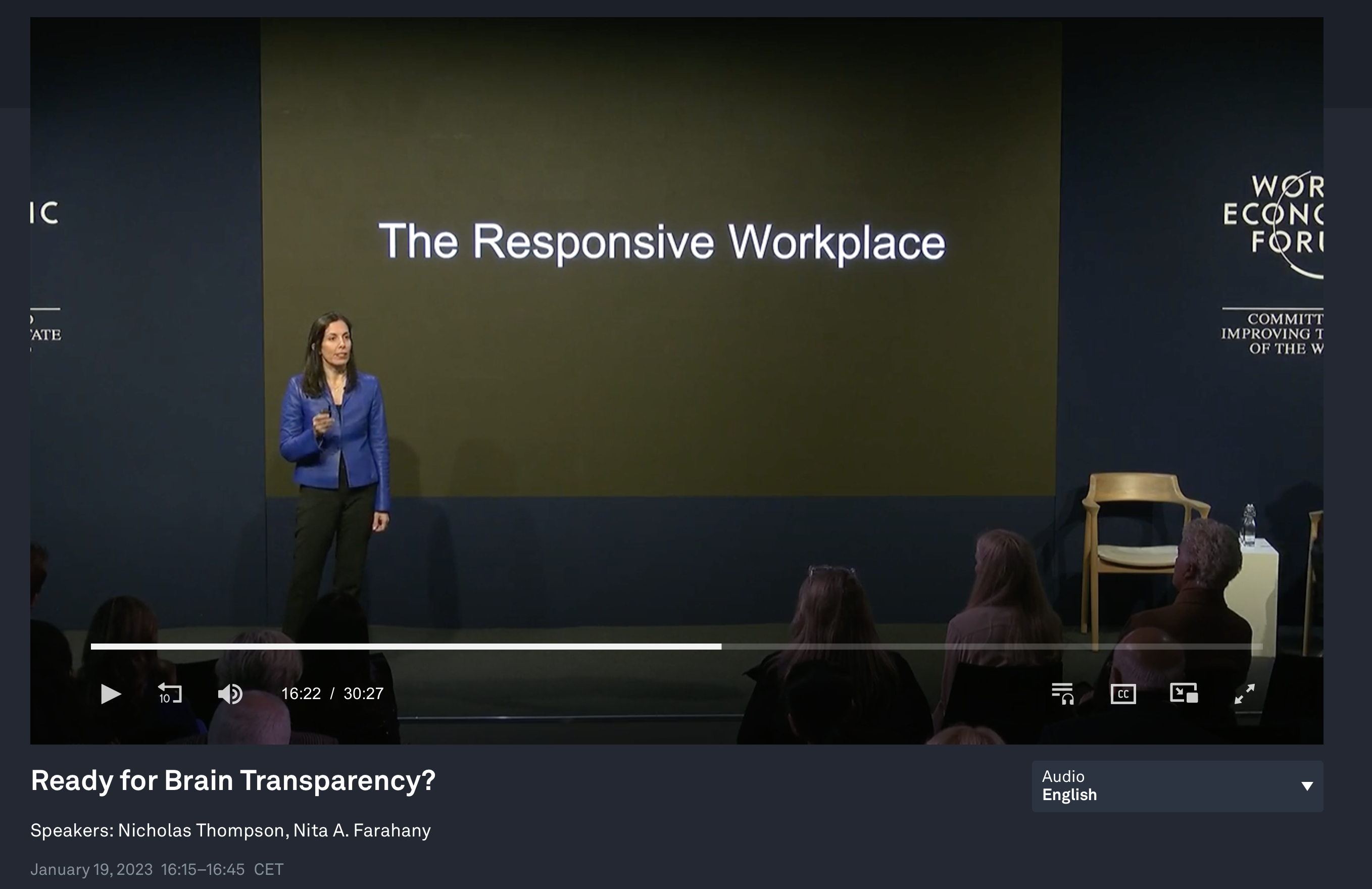
This panel called “Ready for Brain Transparency” at the Davos World Economic Forum made us pretty nervous and it turns out, with good reason.
In this panel, Duke University researcher and self-described “futurist” Nita Farahany predicts that in the future, even healthy adults will use implanted technology in order to collect data from their brain for insights and convenience. Like, “Hey, if I can implant this device that plays music and takes calls directly into my brain, I won’t lose it and that’s convenient. And also, upload my private thoughts to a server. I’m sure that’s fine.”
Farahany presents this nice use case: brain technology can decode your ATM passwords so you don’t have to remember it. Also, the implants can be the primary way we interact with all of our technology instead of a mouse.
If we hand over the data from our brains, researchers will get better at decoding complex thought, she says. She calls for something called “cognitive ergonomics” in the workplace. Like, “Let’s make sure work is comfortable for your brain by letting us in there.”
Farahany admits there is a dystopian element to all of this because if it is “done poorly, it could be the most oppressive technology we’ve ever introduced in a wide scale across society.”






